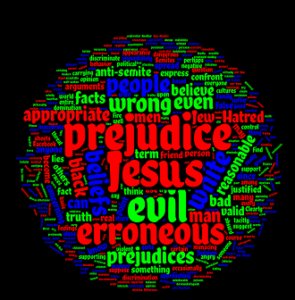
Error and forgiveness
From a scientific point of view, finding errors in methods and analyzes means changing the route and not the research hypothesis, if a hypothesis is not confirmed this is a result and not an error, in fact for Popper this is how science walks, but another thinker Thomas Kuhn argues that there are ruptures or new research hypotheses, quantum physics is an example of this.
methods and analyzes means changing the route and not the research hypothesis, if a hypothesis is not confirmed this is a result and not an error, in fact for Popper this is how science walks, but another thinker Thomas Kuhn argues that there are ruptures or new research hypotheses, quantum physics is an example of this.
Already in philosophy, most philosophers defend that forgiveness is a moral virtue, thus it expresses the human capacity to overcome resentment and revenge, and with this restore interpersonal and social relationships, but there are philosophers who see forgiveness as weakness or illusion, since it denies the seriousness of the evil and the responsibility of the offender.
The contemporary philosopher who dealt with forgiveness was Paul Ricoeur, who developed it without departing from the religious sense (mainly Christian) and sees it as a paradox, as it goes against the unforgivable, that is, that which cannot be repaired or compensated by justice.
The theme is relevant because Ricoeur recalls that the theme became relevant “particularly characteristic of the post-Cold War period, in which so many peoples were submitted to the difficult test of integration of traumatic memories” in a text published in Esprit, no 210 (1995) , pp. 77-82 and which can be found on the Internet or part of the Ricoeur book (1967).
The author places “forgiveness in the energetic action of a work that begins in the region of memory and continues in the region of oblivion” (Ricoeur, 1995), and that a phenomenon “that can be observed on the scale of common consciousness, of memory shared” and clarifies that he wants to avoid the debatable notation of “collective memory”.
Although written well before our time, as much the totalitarian question is at stake as the question of colonialism, and this means a “shared” memory that can lead to fury.
The philosopher uses the vocabulary of the German philosopher R. Roselleck, who opposes “our global historical consciousness”, which he calls the “space of experience” and, on the other hand, the “horizon of waiting”, if we look at our experience almost we can overcome hatred and resentment between peoples and cultures, so I consider it correct not to use “collective memory”.
It is necessary to overcome historical errors, misconceptions and paths already trodden, which led us to chaos.
Ricoeur, P. (1967) Symbolism of Evil, Harper & Row Pub, New York: USA. (pdf).









